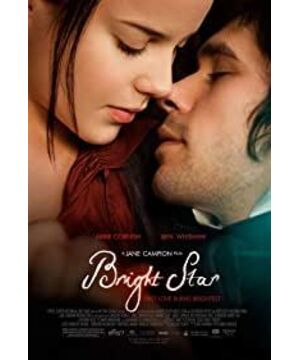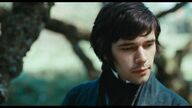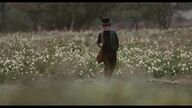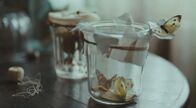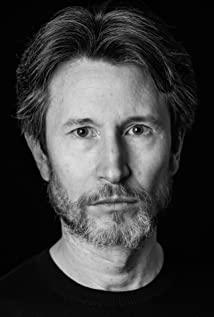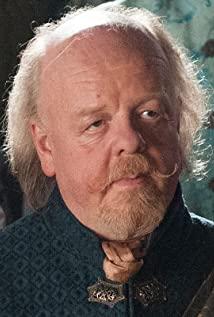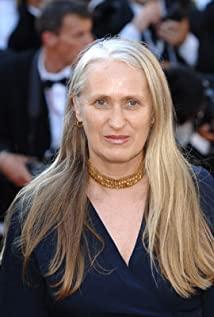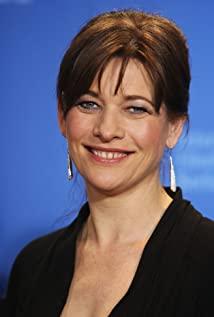If it weren't for the quiet afternoon of the British and American poetry anthology class, I might have missed this too literary film. Yes, it is too literary and does not consider catering to the audience at all, and only presents everything the female director wants to present - the boulevards in the English countryside and the cicadas in summer, violin accompaniment and dance parties, large poems quotes, slow progress of love and conflict and the tragedy of passing, the young life of poet Keats. But if you fully immerse yourself in the artistic conception of the film, touch, listen, reminisce and feel with your heart, it will definitely be an unforgettable and graceful experience.
As the Guardian film critic said, "The movie is over, but the chemical smell between the hero and heroine is more and more fragrant, and we know that it is love." This feeling, on the one hand, is due to the exquisite and soulful performances of all the actors, and more importantly, the quiet and moving world presented by director Jane Campion, witty script, charming photography, poetic scenery, beautiful soundtrack and sound effects ...composes a long, sad visual poem. It seems that all the charm of cinematic art is condensed in this film. The time span of this film is only two or three years, but the two-hour viewing process seems very long, and you don't want it to end like this. There are many favorite passages, as follows, it should be the most complete summary in history, I strongly recommend the original soundtrack. The soundtrack opens with a class on Keats' poetry writing. In Negative Capability, in the drizzle outside the window, student Fanny Brawne murmurs softly, "I still don't know how to write poetry." Asking for advice from a penniless little poet is almost like "ashamed to ask", Keats said: "Poetry is like swimming in a lake, the purpose is not to swim quickly to the shore, but to enjoy the touch of the lake, which is beyond the mind. A sensory journey." In an instant, the conversation between the two was overwhelmed by the sporadic sounds of the violin, viola, cello and clavichord, allowing music to summarize the conversation. This dialogue is a wonderful metaphor.
When Keats first moved to Fanny's next door and hadn't confessed, the two listened to each other's breathing through the door. The hazy beauty of that ambiguous moment was really breath-taking.
When Fanny and Keats knew in their hearts that they would never see each other again and said goodbye to each other, Fanny said: Shall we awake and find all this is a dream? My heart aches, and a drowsy numbness pains And numb My sense, as though of hemlock I had drunk, Or emptied some dull opiate to the drains One minute past, and Lethe-wards had sunk: 'Tis not through envy of thy happy lot, but being too happy in thine happiness -- that thou, light winged Dryad Of the trees, For In some melodious plot You, of beechen green, and shadows numberless, In some melodious plot of beechen green, and shadows numberless, Singest of summer in full-throated ease. Let go of your voice and sing summer O, for a draught of vintage! that hath been Cooled a long age in the deep-delved earth, Tasting of Flora and the country green, a taste reminds me of Dance, and Provencal song, and sunburnt mirth! Think of Flower God, Love Song,O for a beaker full of the warm South, Full of the true, the blushful Hippocrene, with beaded bubbles winking at the brim, with beaded bubbles winking at the brim And purple-stained mouth, that I may drink, and leave the world unseen, and with thee fade away into the forest dim. Fade far away, dissolve, and quite forget What thou amongst the leaves hast never known, the weariness, the fever, and the fret Here, where men sit and hear each other groan; Where palsy shakes a few, sad, last grey hairs. Where youth grows pale, and spectre-thin, and dies; Where nut to think is to be full of sorrow And leaden-eyed despairs; Where nut to think is to be full of sorrow Beauty cannot keep her lustrous eyes, Or new Love pine at them beyond to-morrow.The new love will wither before tomorrow Away! away! for I will fly to thee on the viewless wings of Poesy, Though the dull brain perplexes and retards the Queen-Moon is on her throne, the night is so gentle, the moon is on the throne after the moon is on the throne Clustered around by all her starry Fays; surrounded by a group of stars guarding her But here there is no light, but here is not very bright Save what from heaven is with the breezes blown Through verduous glooms and winding mossy ways. I cannot se what flowers are at my feet, Nor what soft incense hangs upon the boughs, but, in embalmed darkness, guess each sweet Wherewith the seasonable month endows the grass, the thicket, and the fruit-tree wild -- White hawthorn,and the pastoral eglantine; The white citrus, and the field rose Fast fading violets covered up in leaves; And mid-May's eldest child And mid-May's eldest child, The coming musk-rose, full of dewy wine, The murmurous haunt of flies on summer eves. Darkling I listen; and for many a time I listen in the dark have been half in love with easeful Death, Called him soft names in many a mused rhyme, To take into the air my quiet breath; Now more than ever seems it rich to die, To cease upon the midnight with no pain, While thou art pouring forth thy soul abroad You are pouring out your heart In such an ecstasy! Still wouldst thou sing, and I have ears in vain -- You will still sing, but I will not hear? To thy high requiem become a sod. You Thou wast not born for death, immortal Bird! immortal bird,You won't die No hungry generations tread thee down; The voice I hear this passing night eas heard In ancient days by emperor and clown: Through the sad heart of Ruth, when, sick for home, She stood in tears amid the alien corn; standing in the alien corn and thinking of home The same that oft-times hath is the voice often Charmed magic cases, opening on the foam of perilous seas, in faery lands forlorn. A beautiful woman looking at the sea's sinister waves Forlorn! the very word is like a bell lost, this sentence is like a bell To toll me back from thee to my sole self! Makes me dash to where I stand Adieu! the fancy cannot cheat so well Farewell! As she is famed to do, deceiving elf. Adieu! adieu! thy plaintive anthem fades Farewell! Farewell! You complain Song Past the near meadows, over the still stream, Up the hill-side; and now 'tis buried deep Slip up the hillside, while it's deep In the next valley-glades: Was is a vision, or a waking dream? Fled is that music -- Do I wake or sleep? The song is gone
Bright Star by John Keats Bright star, would I were steadfast as thou art--- Not in lone splendour hung aloft the night And Watching, with eternal lids apart, Like nature's patient, sleepless Eremite, The moving waters at their priestlike task Of pure ablution round earth's human shores, Or gazing on the new soft-fallen mask Of snow upon the mountains and the moors--- No-yet still steadfast, still unchangeable, Pillow'd upon my fair love's ripening breast, To feel for ever its soft fall and swell, Awake for ever in a sweet unrest, Still, still to hear her tender-taken breath, And so live ever---or else swoon to death. Bright star John Keats Bright star, I hope I can be as firm as you -- but not alone in the night sky, twinkling high, with eyes that never close, like an ascetic hermit awake all night, staring at the sea washing the earth's cliffs, like a priest purifying Bathing, or overlooking the moors and mountains of the lower world, covered in a softly falling snow cover—not so—but always firm, lying on the breast of my beautiful love, always feeling its lightness Light ups and downs, always awake, in sweet restlessness, always, always listening to her soft breathing, always living like this - or fainting and dying.
The Letters Keats: My dearest lady, I am now at a very pleasant cottage window looking onto a beautiful hilly country, with a view of the sea. The morning is very fine. I did not know how elastic my spirit might be, what pleasure I might have in living here if the remembrance of you did not weigh so upon me. Ask yourself, my love, whether you are not very cruel to have so entrammelled me, so destroyed my freedom. For myself, I know not how to express my devotion to so fair a form. I want a brighter word than bright, a fairer word than fair. I almost wish we were butterflies and lived but three summer days.Three such days with you I could fill with more delight than fifty common years could ever contained. Will you confess this in a letter? You must write immediately and do all you can to console me in it,make it rich as a draft of poppies to intoxicate me, write the softest words and kiss them that I may at least touch my lips where yours have been. Fanny: My dear Mr. Keats, thank you for your letter. Lately I have felt so nervous and ill that I had to stay five days in bed. Having received your letter, I am up again, walking our paths on the heath. I've begun a butterfly farm in my bedroom in honor of us. Sammy and Toots are catching them for me. Samuel has made a science of it and is collecting both caterpillars and chrysalises so we may have them fluttering about us a week or more. Keats: I have two luxuries to brood over in my walks, your loveliness and the hour of my death. O that I could have possession of them both in the same minute. I never knew before what such a love as you have made me feel was. I did not believe in it.But if you will fully love me, though there may be some fire, it will not be more than we can bear when moistened and bedewed with pleasures.
View more about Bright Star reviews


